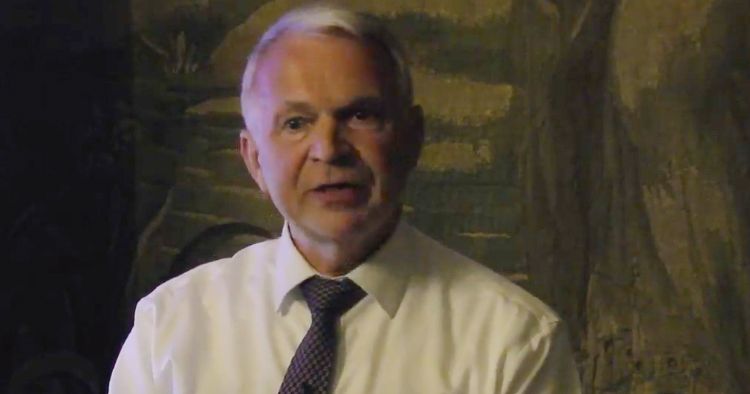
Durham’s Vice-Chancellor was paid nearly £300,000 last year
His pay has increased by £10,000 in one year
The Vice Chancellor of Durham, Stuart Corbridge, saw his pay increase by £10,000 from 2017 to 2018, from £286,000 to £296,000. Mr Corbridge now earns more than twice the Prime Minister does.
Along with the rent-free accommodation and pension contributions endowed by the University, this figure rises £319,000.
Due to pressure from the government and University leadership, Mr Corbridge was removed from the University's Remuneration Committee in 2018, which decided his salary.
The University's terms on reference updated the new format of the remuneration meetings, sating: “Remuneration and terms of conditions of the Vice-Chancellor shall be determined by the other members of the Committee in his absence.”
The University has defended the Vice-Chancellor's salary, claiming "competitive salary packages are essential to attract and retain outstanding staff in senior leadership roles".
Vice-Chancellor salaries have been consistently rising for many years across most British universities. Among the highest paid is Southampton University's Vice Chancellor Sir Christopher Snowden, who earned £432,000 in 2018. Several universities have seen students protest and criticise what are regarded as overly high salary figures.
Durham Vice Chancellor's pay rise comes among criticism from Modern Languages academics, who have had consistently lower pay than other staff at the university for some years, leading to what some teachers to say that the "ambiance (in the department) is different, people don’t have hope”.
Incoming students in 2019 will also have to pay higher accommodation costs, at increase of 3.38 per cent. This means that a single, catered room will now cost £7,672 and non-catered single rooms will be £5,370, as well as £9,250 per year for academic fees. This year has also seen the beginning of the "#Ripped Off" campaign, started by St Aidan's college, which saw hundreds of students protest on palace green in Michaelmas term.
Whilst this figure is near the £300,000 mark, it is still a far cry from the six universities who pay their Vice-Chancellors over £500,000, as reported in the Guardian earlier this year. They included the University of East London, London Business School, The Open University, Imperial College London, and Cambridge.
Some students believe there needs to be much more transparency in terms of managerial staff salaries. Student Claudia Eco said she would "like to know exactly what the Vice-Chancellor is doing to warrant such a salary".
Students' Union President George Walker told The Durham Tab: "It is of great concern to us that whilst Executive pay at the University continues to rise, many students are still not receiving a student experience which is of the quality they deserve to expect.
"Whilst college fees continue to rise, students are often being asked to put up with sub-standard accommodation and despite paying over £9,000 a year in tuition fees.
"The student support services and learning facilities students rely on are coming under increasing pressure, with students struggling to find study spaces and facing long waits to access vital support."
St Aidan's '#RippedOff' campaign also expressed dismay at the statistics, stating "Durham University raising executive pay is completely at odds with their narrative of financial strain which they use to justify cutting costs by firing staff and investing less and less in the student experience. We condemn this hypocrisy".
Vice Chancellor Corbridge defended the rising accommodation costs of the University, stating : “Like any other enterprise, the University’s running costs increase each year. Residence charges are set to reflect rising staff, utility, and building costs.
“We know some of our students face real financial pressures. We offer a bursary scheme, known as the Durham Grant Scheme. This is available to undergraduates – throughout their course – who are Home Students, studying their first degree, and who have a household income of less than £25,000 a year.
"We’re constantly seeking to expand these forms of support as much as possible.”
You can read how much all the UKs other VCs get paid here.









































